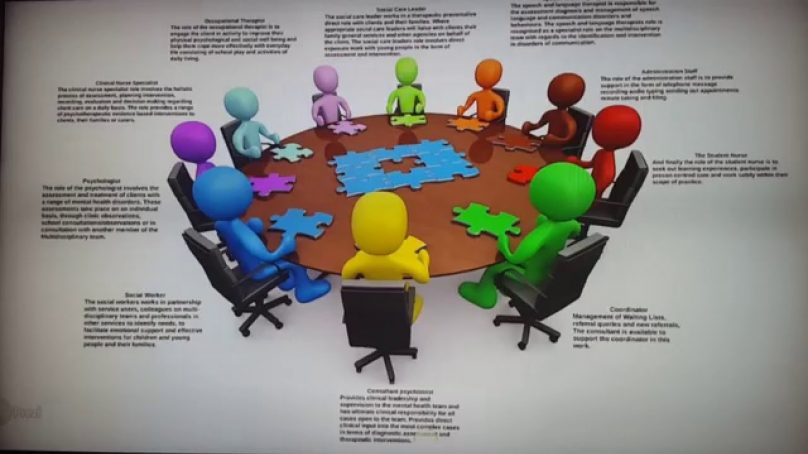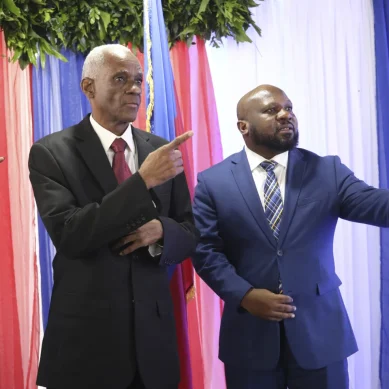
Not many scholars in Africa in general and Uganda in particular are aware of the fact that since the early 1970s a new scholarship has been rooting itself on many university campuses globally, yet they are integral to the global higher education.
The new scholarship is distributed among the following team sciences: interdisciplinarity, crossdisciplinarity, transdisciplinarity and non-disciplinarity or extradisciplinarity. Indeed, many knowledge workers and practitioners in Africa in general and Uganda in particular continue to work in “teams” without the slightest knowledge or awareness of the emerging field of team science constituted by the four aforementioned team sciences. They continue to submerge themselves in disciplinary science and to form teams that are short of being integrated.
Consequently, they are unaware of evidence-based knowledge and tested practices about working within and improving effective teams. I do not hesitate to state that because of their pretence that has been building and working in genuine teams, they have prevented the sprouting of the real team sciences and the genuine teams they engender.
In this short article, I want first of all to reiterate that if you want genuine interaction, sustainability, critical thinking, integrated teams and future-ready professionals, you will not achieve them through disciplinary, or even multidisciplinary academic discourse or scholarship. Never.
I have on several occasions stated in my many articles on knowledge integration that multidisciplinarity is not an advancement on disciplinarity. It is glorified disciplinarity, a means to resist the advance of the team and collaborative sciences of crossdisciplinarity, interdisciplinarity, transdisciplinarity and extradisciplinarity.
I have recently written an article by the title “The Alternative Knowledge Systems with Special Emphasis on Transdisciplinarity” in which I aver that, while all the team sciences achieve knowledge integration, the most integrative is extradisciplinarity because it does not evoke disciplinarity in its dynamics, and that transdisciplinarity is integrative enough to be more advanced than crossdisciplinarity and interdisciplinarity.
However, all of them together are needed to usher in the era of integrating and integrated higher education globally, regionally and nationally.
Unfortunately, disciplinarians are still working hard to push the agenda of multidisciplinarity, creating the wrong impression that they are running away from strict disciplinarity, when in fact they are entrenching the knowledge culture and system as of old. The deception is being pursued with determination.
I am aware that the 3rd International Multidisciplinary Virtual Conference was slated to be held in Yola, Nigeria, organised by the America University of Nigeria under the theme “Integrated Sciences and Technologies 2023 from 25-27 October 2023.
To the uninitiated in the team sciences, the conference is an exercise in knowledge integration in the sciences and technologies. The truth is that the conference is integral to the ongoing academic resistance by the rigidly disciplinary scholars to the wind of change in higher education globally under the influence of the team sciences. I have characterised the scholars committed to the disciplinary and multidisciplinary current as “slow professors” because they are slowing down the knowledge integration movement in favour of their narrow disciplinary interests.
Africa and Uganda must join the genuine knowledge integration movement. If not we shall fall by the wayside of the movement and have no influence on the mushrooming revolution in higher education. We shall continue to entrench archaic academic programmes and produce graduates we do not need in this World Wide Web dominated millennium.
One may ask: What does it mean to be an interdisciplinary, crossdisciplinary, transdisciplinary or extradsciplinary scholar or team scientist?
Well, what has it meant to be disciplinary ever since disciplines were introduced and compartmentaliSation of knowledge began to be an academic practice? Didn’t mean creating small knowledges, accompanied by developing closed minds, arrogance and exclusion of other knowledges by erecting rigid walls and creating academic tribes within which to specialize?
Necessarily being an interdisciplinary scholar, crossdisciplinary scholar, transdisciplinary scholar and extradisciplinary scholar entails breaking down the rigid walls, integration loving, inclusive, open-minded, interconnective, interdependent, sustainability seeking, and ready to create knowledge that is more holistic and driven by a strong love for critique, critical thinking, genuine interaction and generation of future-ready professionals.
It means being an agent for building a more integrated world through real knowledge, not artificial knowledge typical of the disciplines.
Interdisciplinarity refers a scholarly orientation that features “a process of answering a question, solving a problem, or addressing a topic that is too broad or complex to be dealt with adequately by a single discipline, and which draws on other disciplines with the goal of integrating their insights to construct a more … involving two or more academic, scientific, or artistic disciplines.”
Basically, it means that when you choose an academic programme that is defined (or partially defined) as interdisciplinary, you will be learning from two or more areas of study.
A cross-disciplinary approach to learning will provide opportunities for students and faculty to: create and expand personal and professional learning networks. Master different ways of working across subjects and disciplines. Make connections between what is learned in different subjects and disciplines. It is the art of combining several sciences in one person.
A transdisciplinary scholar is a scientist trained in various academic disciplines. This person merges all his or her knowledge into one thick wire. That united knowledge wire is used to solve complex problems that cannot be solved using the simple methods of the disciplinarians that break problems in small bits that include many problems.
An extradisciplinary scholar is a one who is not bogged by disciplinary restrictions and is free to think, do and innovate without necessarily referring to the innovations of others. Such scholars are active in the information technologies. They cannot tick outside teams. To be an extradisciplinary scholar is to be beyond the disciplines.
Therefore, no meaningful and effective integration of knowledge and practice can be achieved without aiming highest towards extradisciplinary scholarship and practice, which aims to involve as wide a spectrum of stakeholders as possible. Projects and programmes that are integrative and inclusive cannot afford not to aim highest. This, however, can only be possible if our academia open up to the most integrative and inclusive and integrative knowledge system: extradisciplinarity. This means de-disciplinarising our universities, programmes and projects in and outside the university system.
Whatever the case, the challenges for interdisciplinarity, crossdisciplinarity, transdisciplinarity and extradisciplinarity are two:
To explore and understand what being a team scientist in either of the knowledge systems means and entails; and:
To develop a framework for conceptual skills and strategies for being a cross-disciplinary, interdisciplinary, transdisciplinary or extradisciplinary scientist.
Unfortunately, in the world in general and in Africa in particular overindulgence with the disciplinary knowledge system at the exclusion of the alternative knowledge systems and the continuing resistance to them means we have to wait longer to address the two challenges effectively. However, the process has started. We may be able to create a cadre of team scientists globally, continentally, regionally and nationally to collaborate and coordinate it. If we do, we shall be able to take critical thinking, sustainability, genuine interaction and future-ready professionals seriously to be able to experience meaningful development, transformation and progress through inclusion and integration of knowledge and practice.
- A Tell report / By Prof Oweyegha-Afunaduula, a former professor in the Department of Environmental Sciences of the Makerere University, Uganda










